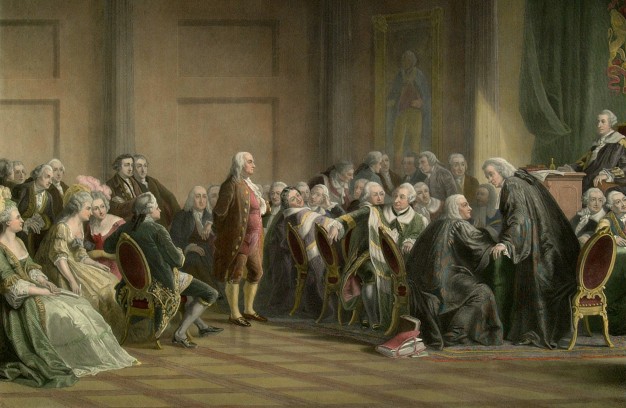
It’s interesting to think about how the popularity of things changes overtime Sometimes they go in and out of fashion as a matter of preference. Other times it’s because we have learned that things done in the past were not beneficial or were perhaps even harmful. I’m going discuss a couple of those things and then try to wrap it all up with a guess about what may be popular in the future.
The first thing that comes to mind is cigarette smoking. There was a time during my younger days when cigarette smoking was not only acceptable, but it was almost mandatory if you were going to be sophisticated.
As illustrated by the advertisement above doctors were often employed as a vehicle to sell cigarettes. And in fact, I remember a friend telling me he was advised by his doctor to start smoking because it would “exercise his lungs”. (I really hope he misheard that.)
Movie stars all smoked. Check out Turner Classic Movies and look at any film from the 1940s or 1950s. The stars constantly had a cigarette in their hand. I can’t recall a movie with Humphrey Bogart where he wasn’t lighting up. The women were also lighting up. Lauren Bacall looked pretty sexy with a cigarette.
It wasn’t just the movie stars who made us want to smoke. President Franklin Roosevelt smoked, and he used a cigarette holder. He made it look elegant and made a lot of other people want to emulate him. Unfortunately for many who tried, very few could pull off the cigarette holder without looking foolish.
Smoking was also considered to be manly. President Eisenhower, when he was the Supreme Allied Commander in Europe during World War II, famously smoked 5 packs of cigarettes a day, all unfiltered. And we could only hope to have looked as cool as James Dean did in Rebel Without a Cause when he lit a cigarette in almost every scene. We certainly can’t forget the Marlboro Man, the rugged cowboy who always had a cigarette in his hand.
When I was in high school, we couldn’t wait to start smoking. We were convinced it would make us look like grownups, and as soon as we were able, we started lighting up. For the most part our parents told us we shouldn’t smoke but since they were smokers themselves that really didn’t carry a lot of weight with us.
But it’s easy to understand why my cigarettes fell out of favor. Health warnings in the early 1960s helped to discourage people from smoking and the widely reported scientific studies linking it to cancer that occurred in the 1970s and 80s further lessened its popularity. Smoking is no longer looked upon as sophisticated or elegant. It is looked upon as deadly.
The popularity of wine is also interesting. In the early 1900s wine was considered the province of the upper classes. It was served at white tie dinners by formally attired butlers. It had an aura of aristocracy. Average people seldom had wine at home.
Prohibition almost destroyed the wine industry in the United States with only a few wineries receiving an exemption for sacramental wine. (It was good to be Catholic during prohibition.) After prohibition, the wine business initially did not recover in the United States. It wasn’t until the 1970s when a few wineries from California started challenging the Europeans that wine started gaining any popularity. We only have to remember that for years the term that was used to refer to a “Skid Row drunk” was wineo. The only people who use that term now are wine aficionados. We use it jokingly to refer to ourselves to try and offset the wine snob image.
Wine has reached an almost cult status now. It’s become not only popular but ubiquitous in any group that considers itself to be “with it”. The craft beer phenomenon is a natural follow on using many of the same terms and rituals. It has also created a new generation of beer snobs.
So, what is next? I wish I could predict. I’d start investing now. Using the principle that what was old will be new, I’m going to take a guess and say that vinyl records will make a comeback. Or is that already happening? Good thing us geezers never get rid of anything.







Memorial Day
By John Turley
On May 31, 2021
In Commentary
Memorial Day began to honor those who died in defense of our country. Over time we also recognized the sacrifice of police and fire fighters. Now, in the face of the latest threat to our nation, let us add to the list of honor those in health care, education, and other vital industries whose lives were lost providing for our safety and security. May God bless them and their families.